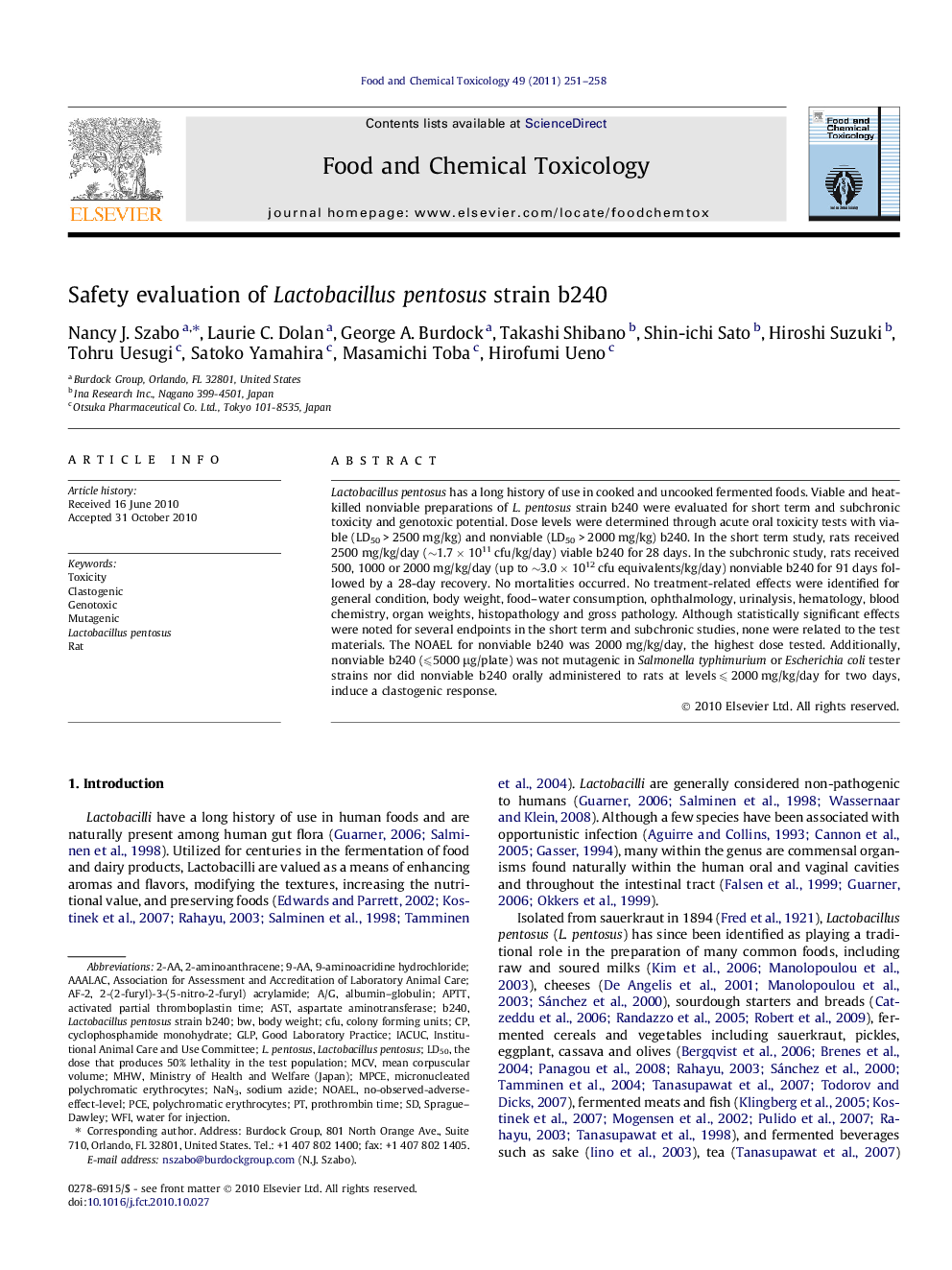| Article ID | Journal | Published Year | Pages | File Type |
|---|---|---|---|---|
| 5853900 | Food and Chemical Toxicology | 2011 | 8 Pages |
Abstract
Lactobacillus pentosus has a long history of use in cooked and uncooked fermented foods. Viable and heat-killed nonviable preparations of L. pentosus strain b240 were evaluated for short term and subchronic toxicity and genotoxic potential. Dose levels were determined through acute oral toxicity tests with viable (LD50 > 2500 mg/kg) and nonviable (LD50 > 2000 mg/kg) b240. In the short term study, rats received 2500 mg/kg/day (â¼1.7 Ã 1011 cfu/kg/day) viable b240 for 28 days. In the subchronic study, rats received 500, 1000 or 2000 mg/kg/day (up to â¼3.0 Ã 1012 cfu equivalents/kg/day) nonviable b240 for 91 days followed by a 28-day recovery. No mortalities occurred. No treatment-related effects were identified for general condition, body weight, food-water consumption, ophthalmology, urinalysis, hematology, blood chemistry, organ weights, histopathology and gross pathology. Although statistically significant effects were noted for several endpoints in the short term and subchronic studies, none were related to the test materials. The NOAEL for nonviable b240 was 2000 mg/kg/day, the highest dose tested. Additionally, nonviable b240 (⩽5000 μg/plate) was not mutagenic in Salmonella typhimurium or Escherichia coli tester strains nor did nonviable b240 orally administered to rats at levels ⩽ 2000 mg/kg/day for two days, induce a clastogenic response.
Keywords
IACUC9-AAGLPMCVL. pentosusAAALAC2-aminoanthraceneAF-2APTTLD50CFU2-AAA/GASTAspartate aminotransferaseAssociation for Assessment and Accreditation of Laboratory Animal CareGood Laboratory PracticeMean corpuscular volumeactivated partial thromboplastin timeInstitutional Animal Care and Use Committeecyclophosphamide monohydrateLactobacillus pentosuscolony forming unitsbody weight
Related Topics
Life Sciences
Agricultural and Biological Sciences
Food Science
Authors
Nancy J. Szabo, Laurie C. Dolan, George A. Burdock, Takashi Shibano, Shin-ichi Sato, Hiroshi Suzuki, Tohru Uesugi, Satoko Yamahira, Masamichi Toba, Hirofumi Ueno,
